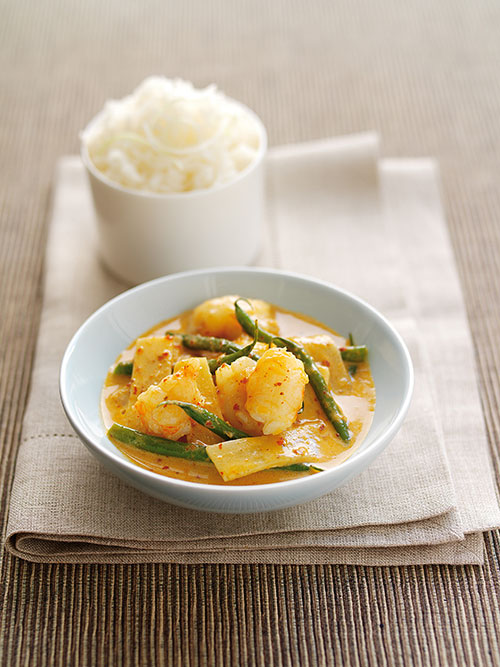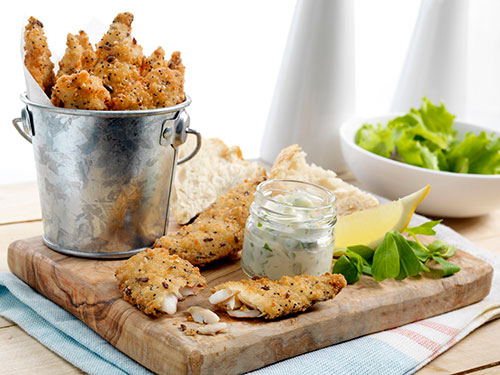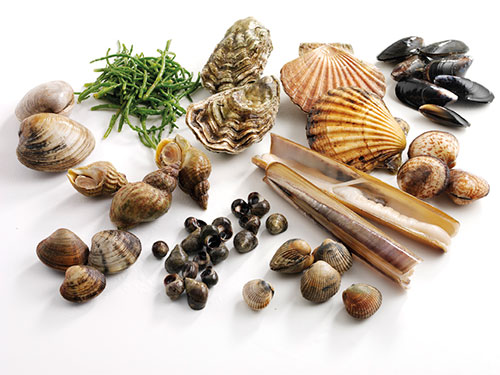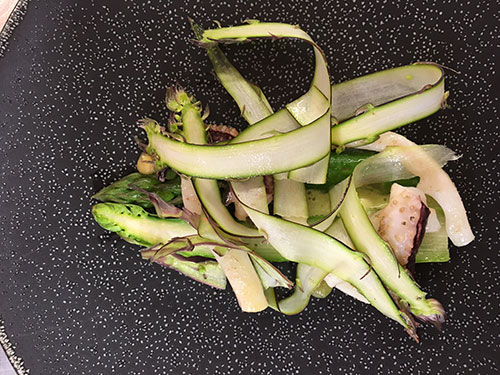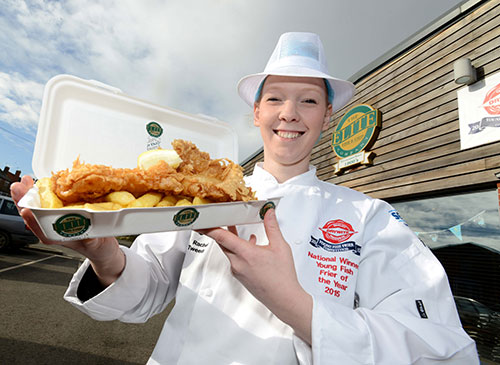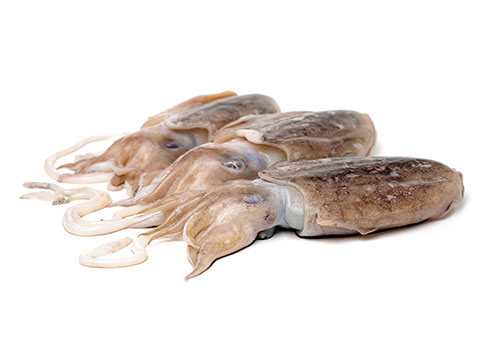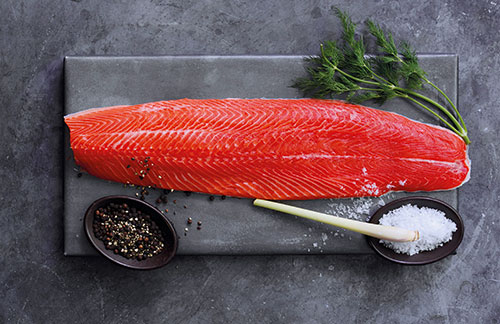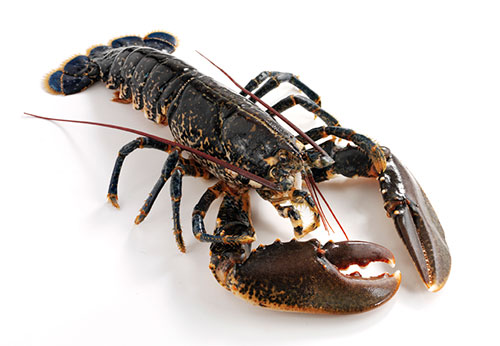What's the catch? Serving unusual fish species
Richard McComb reports
It was once considered faddish, the culinary preserve of the chattering classes and fish fashionistas. Diners may have liked the idea of eating fish from sustainable stocks, preserving Mother Nature's bounty one fillet at a time, but chefs found it difficult to secure supplies, there was a lack of variety and consumers were baffled by unfamiliar species.
How times have changed, and relatively quickly, too. The global market for sustainable seafood has grown rapidly in the past decade, up from 0.5% in 2005 to 14%, according to the State of Sustainability Initiatives Review, Standards and the Blue Economy. The report revealed retail sales of sustainable fish and shellfish, both caught in the wild and farmed, were worth $11.5b last year. Sustainable wild catch accounted for 20% of all global wild catch in 2015, representing almost 80% of the total certified seafood market.
Two Michelin-starred-chef Nathan Outlaw strongly insists that certified sustainable fish is not a flash in the pan. "Sustainability is most definitely not a fad. That's a terrible word to use alongside sustainability," he says.
"Sustainability is pure common sense. It's unfortunate that in the past people weren't aware of the need for sustainability. If they had been, we wouldn't be in the situation we find ourselves in now," he adds.
Twenty years ago, if The Caterer asked chefs to name the seafood they were working with, their fridges may have contained turbot, Dover sole and lobster. A ring-round in 2016 reveals a different picture, as chefs deliver new flavours with cuttlefish, whelks, pike, gurnard, sprats and razor clams.
"I use lesser-known and less high-value species the same as I would any other fish," says Outlaw. "They're only lesser-known because they're not used as much - not because they offer less taste-wise or in quality terms.
"Fish species are a bit like brands. We know cod, so we keep using it and we are reluctant to try anything else. But by using the types available at the market or from fishermen is how I've created my restaurants. I use what's good and what's being caught at the time."
Outlaw's new seafood cookery book, Everyday Seafood, aims to make the whole subject more accessible, but the chef admits it takes dedication to win over sceptical diners. "It's taken around 12 years to get to the stage where I can now put whatever is good and plentiful on the menu and for customers to accept it without question - even if it's something they've never had before," he says.
The growth of the Marine Stewardship Council's (MSC) blue ecolabel scheme, boosted by an improved range and volume of certified sustainable species and robust demand in retail and foodservice, means there are far more options for chefs. Some 45% of the UK seafood catch is now certified sustainable, with more than 1,100 MSC-labelled products on sale. Product availability has more than doubled since 2012.
George Clark, MSC UK commercial manager, concedes that the MSC programme has sometimes been out of reach for the UK foodservice sector: "Availability of relevant species, complexity of certification and the associated costs have meant that a lot of chefs and restaurateurs have been unable to access and make the most of what the MSC has to offer. By making improvements over the past few years in these three areas, the MSC programme is more accessible than ever."
Red Thai langoustine
The cod squad
For consumers with traditional tastes, MSC-certified cod is sourced from Icelandic or Norwegian waters and sustainable North Sea cod could soon be back on the menu in the near future. Cod's texture and flavour make it a versatile fish, and it is served at Mexican restaurant group Wahaca and recent Sustainable Restaurant Association award-winning group Lussmanns. Cuban restaurant Cubana in Smithfields, London, uses MSC-certified cod in 'cod Veracruz', in which the fish is seared and baked with coriander, tomato, peppers, flat-leaf parsley, oregano, olives, chilli and orange zest.
Cornish hake is the first hake fishery in the UK to achieve MSC certification and it's available from Brixham and Newlyn fish markets.
Major hotel groups are recognising the consumer benefits of MSC certification. Hilton became the first global hotel company to achieve MSC group certification for 41 owned, leased and managed hotels in the UK, the Netherlands and Belgium in November 2015. They all serve MSC-certified cod. Bill Kornegay, senior vice-president of supply management at Hilton Worldwide, says: "Businesses and customers alike are increasingly discerning about where their food comes from.
"As culinary gatekeepers, our chefs not only pride themselves on selecting and presenting food of great quality and taste, but also in supporting Hilton's global commitment to sustainability, which includes the responsible sourcing of seafood."
M&J Seafood's Seeded Sprats
It is a message echoed by leading independent supplier M&J Seafood, which is keen to raise awareness about the diversity of the domestic sea harvest. "There are tonnes of quality fish around UK shores that get overlooked, such as megrim, gurnard, whiting, sprats and cuttlefish," says M&J Seafood business development chef Jason Calcutt. "However, because consumers are not familiar with these species, they tend to ignore them, even if they are on the menu."
It is crucial to educate and train front of house staff so they can advise and inform diners. Chefs can play their part by pairing lesser-known fish such as gurnard with a more popular choice, like salmon. "Sprat fillets are a great bar snack or starter when coated, deep-fried and served with lime wedges. Or how about serving cuttlefish as 'calamari,' or in a risotto with its ink?" says Calcutt.
M&J Seafood champions sustainability in its Sustainably Sourced Seafood List, created in partnership with the MSC and the Marine Conservation Society. The list features 400 responsibly sourced lines. M&J also produces two charts - Wild British and In Season.
Among the latest products available for UK restaurants is Norwegian fjord trout, a sea-farmed trout with a stunning deep red-orange colour. It's a little smaller than salmon, and as fjord trout store most of their fat on the belly and less in its flesh, the fat is easy to cut away, producing lean, tender fillets. The firm meat structure means they are less susceptible to fillet-gaping and the fish is ideal served raw, as a tartare, or smoked, marinated, steamed, fried or grilled.
Chef Daniel Galmiche says: "Fjord trout is a beautiful, versatile fish to cook with. It is vibrant in colour and wonderfully delicate in flavour. You should always take care not to overcook fjord trout and keep the flesh lovely and pink instead, or you will lose the quality of its oils and nutty flavours."
Unusual tastes
In a bid to raise awareness about species diversity, Oriental supplier SeeWoo Foods launched a live seafood counter, one of the first of its type in central London, and it has seen brisk trade in razor clams, according to SeeWoo marketing director Lucy Mitchell. "The clams' unique flavouring and texture has become more appealing, not just to East Asian customers but also English customers," says Mitchell.
"Whelks, which in Victorian London were abundant and sold out of wheelbarrows, have also seen a large interest. They seem to have been put back on the map in London.
"Many of the unusual seafood species that seem to be popular in SeeWoo tend to be the ones that aren't easy to buy elsewhere, including red grouper and salmon heads. Unless you ask specifically at a mainstream supermarket, they won't offer salmon heads, which is a shame as they are good for making fish stock."
Alistair Craig's cuttlefish, Wye Valley asparagus, black garlic and egg yolk
Eels are also popular for Japanese unagi preparations or Western-style smoking.
Chefs throughout the UK are branching out. Alistair Craig at the Horseshoe Restaurant in Peebles, Scotland, has a cuttlefish dish on the menu, pairing the fish with seasonal Wye Valley asparagus, black garlic and egg yolk.
At the Cross in Kenilworth, Warwickshire, Adam Bennett is on a mission to champion pike with his version of Lyonnaise-inspired quenelles de brochet. Bennett plans to try out his 'pike mousseline' with an updated langoustine and beurre noisette sauce at one of the pub's new Project Nights.
"It is something I have had in mind for a while, but never got round to. It is a dish that I love and it could become a course on the tasting menu," he says.
Rachel Tweedale of the Elite Fish & Chip Company
The traditional fish and chip shop is also in the vanguard of promoting sustainable fish, with the number of outlets achieving MSC certification up by a third over the past year. Kingfisher Fish & Chips in Plymouth, which won the Good Catch Award 2016, offers a menu with 12 MSC-certified fish and shellfish - the largest in the world.
Rachel Tweedale, manager and third-generation fish fryer at the MSC-approved Elite Fish & Chip Company in Sleaford, Lincolnshire, gets weekly reports from trawlers about the latest sustainable catch. "On a regular basis, we will provide fish choices that differ from a lot of our local competition. This can range from fresh salmon to line-caught hake. Dishes like breaded plaice and crab and lobster burgers are also proving popular," says Tweedale.
Foodservice is also looking at ways to satisfy market demand while balancing sustainability concerns. JJ Food Service has launched a premium range of individually quick-frozen cod, haddock and plaice and line-caught cod and haddock. The line-caught fish, which involves towing up to 40,000 baited hooks, avoids the by-catch associated with large trawling nets.
At the end of the day, the old adage rings true: you get what you pay for. As Nathan Outlaw says: "Good-quality fish is never going to be cheap, no matter what species it is. We can't do lesser-value dishes because that would mean buying lesser-quality fish, which is something I absolutely refuse to do. I'm afraid it's a case of if you want good-quality fish dishes, you have to pay for them."
Catch of the day: MSC-certified produce for a 'specials' menu
MSC cod skrei (In season from January until the end of March.) This cod has a distinctive flavour and firm white flesh.
MSC Tristan lobster tails Premium coldwater lobster handled and frozen to the highest Japanese standards.
MSC Spencer Gulf king prawns Great quality and taste from Australian prawns, the world's only MSC-certified wild capture king prawns
MSC Dutch oysters (In season from September to March.) These are great quality and a premium item to serve. The Wholefoods Store in London recently became the first UK retailer to sell MSC-certified oysters.
MSC (Blueshell) Shetland mussels Some leading MSC fish and chip shops are adding certified mussels to their menu.
MSC Shetland scallops Tipped to be the next shellfish to appear at leading certified restaurants.
MSC Dover sole A delicious fish caught by the Hastings fisheries.
MSC sardines Great-tasting and nutritious, caught in UK waters and available from June to January.
MSC Royal Greenland prawns These are of consistent quality - the certified coldwater prawns are available cooked and peeled and supplied frozen.
MSC Chilean seabass This is also known as Cap Bourbon Patagonian toothfish, and it is the best-quality toothfish available.
Norwegian fjord trout
Contacts
Seafish advises the foodservice sector to communicate with customers in "clear and simple terms" about how it sources its fish. Seafish is one of a number of industry bodies that can help businesses better understand issues surrounding sustainability and responsible sourcing.
Seafish
Risk Assessment for Sourcing Seafood
Marine Stewardship Council
Marine Conservation Society
Responsible Fishing Scheme
Fish Source
Continue reading
You need to be a premium member to view this. Subscribe from just 99p per week.
Already subscribed? Log In



